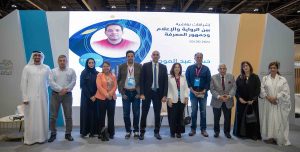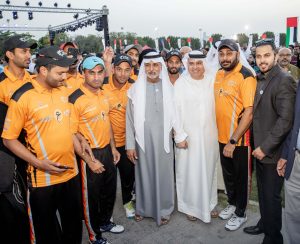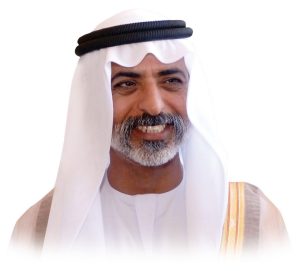ABU DHABI, 4th February, 2019 (WAM) — The two-day Global Conference of Human Fraternity wrapped up with a session entitled ‘Human Fraternity: Challenges and Opportunities’, chaired by Dr. Omar Alnuaimi, Assistant Under-Secretary for Communication and International Relations at the UAE’s Ministry of Human Resources and Emiratisation.The final session examined various initiatives that aim to support human fraternity, highlighted the need to address challenges and explore opportunities, and discussed the vital link between religious morals and fraternity in societies.Panellists included His Eminence Elias Audi, Metropolitan Bishop of the Greek Orthodox Church of Antioch for the Archdiocese of Beirut in Lebanon, Professor Muhammad Quraish Shihab, Member of the Muslim Council of Elders, Ibrahim Isaac Sidrak, Patriarch of the Coptic Catholic Church, and Dr. Aref Ali Nayed, President of the Libya Institute for Advanced Studies.In his opening remarks, Dr. Alnuaimi said, We are honoured to welcome our distinguished guests to the UAE. On the first day of this important global platform, we discussed the principles of human fraternity and defined the responsibilities of the stakeholders. Today, I look forward to identifying the means of achieving human fraternity, in addition to outlining the challenges, possibilities, and opportunities. For his part, His Eminence Elias Audi said, Nowadays, battles between people are derived from trivial circumstances, specifically political, economic, and even technological differences. As mankind, we need to accept and be humble towards one another, communicate, and banish harmful thoughts. He listed hunger, backward ideologies, and the rise of immigration due to dire need as the challenges that hinder the achievement of widespread human fraternity. He also noted the pioneering role the UAE plays in cultivating human fraternity ideals through establishing a dedicated ministry of tolerance and hosting conferences and meetings to share perspectives.In turn, Professor Shihab noted, The biggest challenges to achieving human fraternity and tolerance are materialism, greed, and the marginalisation of our sense of humanity. We have to place respect at the core of open communication. To live in harmony and peace, we need to learn, recognise one another, and acknowledge different opinions. Stressing that food waste can also limit the advancement of tolerant ideals, he added, The Food and Agriculture Organisation of the United Nations states that food waste in Europe and Latin America is sufficient to feed 200 million and 300 million people respectively. Wasting food has become rampant practice. By conserving and giving away unwanted food, we can bolster humanitarian ideals. Ibrahim Isaac Sidrak said, All religious books have harmony in common – we need to remember that and build on it. We should leverage the opportunities to achieve human fraternity by letting go of the past, reconciling our differences, and working towards understanding our pain and relinquishing negative connotations. Speaking on the challenges to human fraternity, he added that people make mistakes and should be mindful about not being too pessimistic or even immaturely optimistic.Dr. Nayed noted that the fact that people have different understandings, experiences, and expectations also poses a challenge to human fraternity and tolerance.The discussion was followed by three workshops on tolerance, humanity, and coexistence.Fraternity is best measured by the strength of cooperation among all stakeholders as well as their commitment to maintaining goodwill for the benefit of humanity. Establishing a culture of peace, reinforcing the concept of citizenship, and combating religious extremism are realistic starting points to achieving human fraternity.



